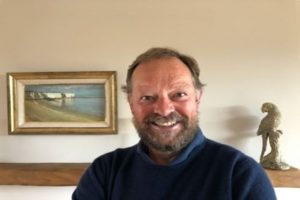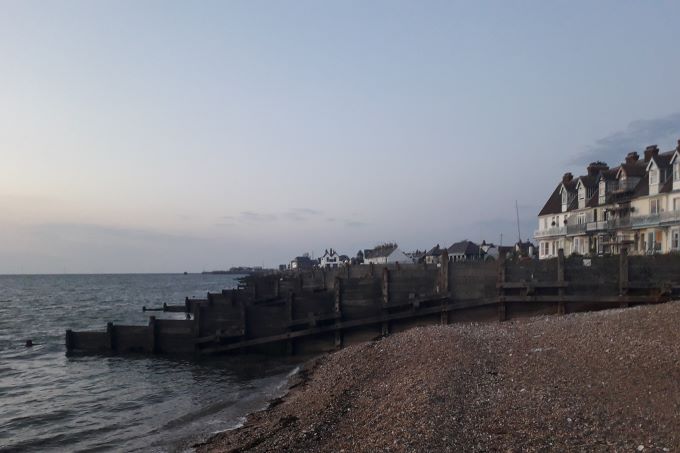In the next student blog of our series on “The Impact of COVID-19 on Kent and Medway”, MSc student and former defence diplomat John Maas explores how securitisation theory can help us understand the complexities of public messaging during the crisis.
Only weeks ago there was unanimity that Covid-19 was more than a health emergency: it represented an existential threat that sat above politics and created national unity. Now people want to get back to normal – my local beach at Tankerton, near Whitstable, is again bustling – how can we explain the change in behaviour when there is still a killer virus on the loose?
Securitisation theory might explain both the public mood and help us understand the current government dilemma of how to keep people safe and at the same time get life back to normal. My premise is simple: in galvanising the public to respond to Covid-19, the Government used a well-known element of International Relations Theory – the speech act – to trigger a process of securitisation. This focussed attention on the threat, but now as the chokehold is released, the shine is coming off ‘existential’ as ‘free-will’ shows new shoots.
Securitisation is the process by which an issue is framed as a problem, or a security threat. First described by the Copenhagen School of Security, a securitising actor (nominally a state with social and institutional power) sets out through a speech act to convince an audience that an issue represents an existential threat to the state and society. This allows for exceptional actions to be taken. The goal is to protect something important, known as the referent object. This pandemic allows us to see theory played out in real life with a cast-list as follows:
- Securitising Actor: State (Parliament, Crown and Church)
- Empowered Actor: The Government
- Audience: The British Public
- Extraordinary Measures: Coronavirus Bill (2020)
- Threat: a pandemic Virus with no known cure (Covid-19)
- Referent Object: The National Health Service (NHS)
- The Narrative: Stay at Home; Protect the NHS; Save Lives
Looking back, the beach at Tankerton was empty because the message was clear and the threat felt tangible. The use of the speech act worked and the public complied.
Back on the again busy beach at Tankerton, with the virus still at large, I watch a kite surfer on his hydroplane board, and see an analogy with securitisation. Like the board taking-off in a stiff breeze, the Coronavirus Bill gave the Government enough oomph to break the surface friction of daily politics and manoeuvre unhindered in the “securitised” existential space.
The problem for the Government now as it tries to return to normal, is that de-securitisation takes the wind out of the existential sail, the hydroplane sinks down to the water, and normal friction returns as the board loses efficiency. The clear and unifying message that provided authority for the empowered actor to take all measures to overcome a threat is weaker.
The first government mantra –‘Stay at home, Protect the NHS and Save lives’ – offered a simple instruction: the second -‘Stay Alert, Control the Virus, Save lives’ – brings into play personal interpretation; the threat now seems less existential and politics comes back into play muddying the water. Re-politicisation is a natural part of de-securitization, but it is not an easy course to steer especially when coupled with governmental ‘Cummings and goings’ it makes me wonder, if the Covid ‘R’ rises again to one, will the Government have the authority to reinstate the draconian measures that kept the hydroplane running free.

John Maas is a postgraduate student reading MSc International Relations (Security Studies) at Canterbury Christ Church University. A former Royal Air Force pilot, he has recently returned to Tankerton having served in Europe for the last ten years as a Defence Diplomat. First as the UK’s Defence Attaché in Paris and then as a seconded national expert to the European Union’s External Action Service, where he was a specialist on countering hybrid threats.
A practitioner throughout his 39-year career, he is enjoying studying the theoretical base that can explain political behaviour – and help predict future responses.
 Politics
Politics Laura Cashman
Laura Cashman 1188
1188


